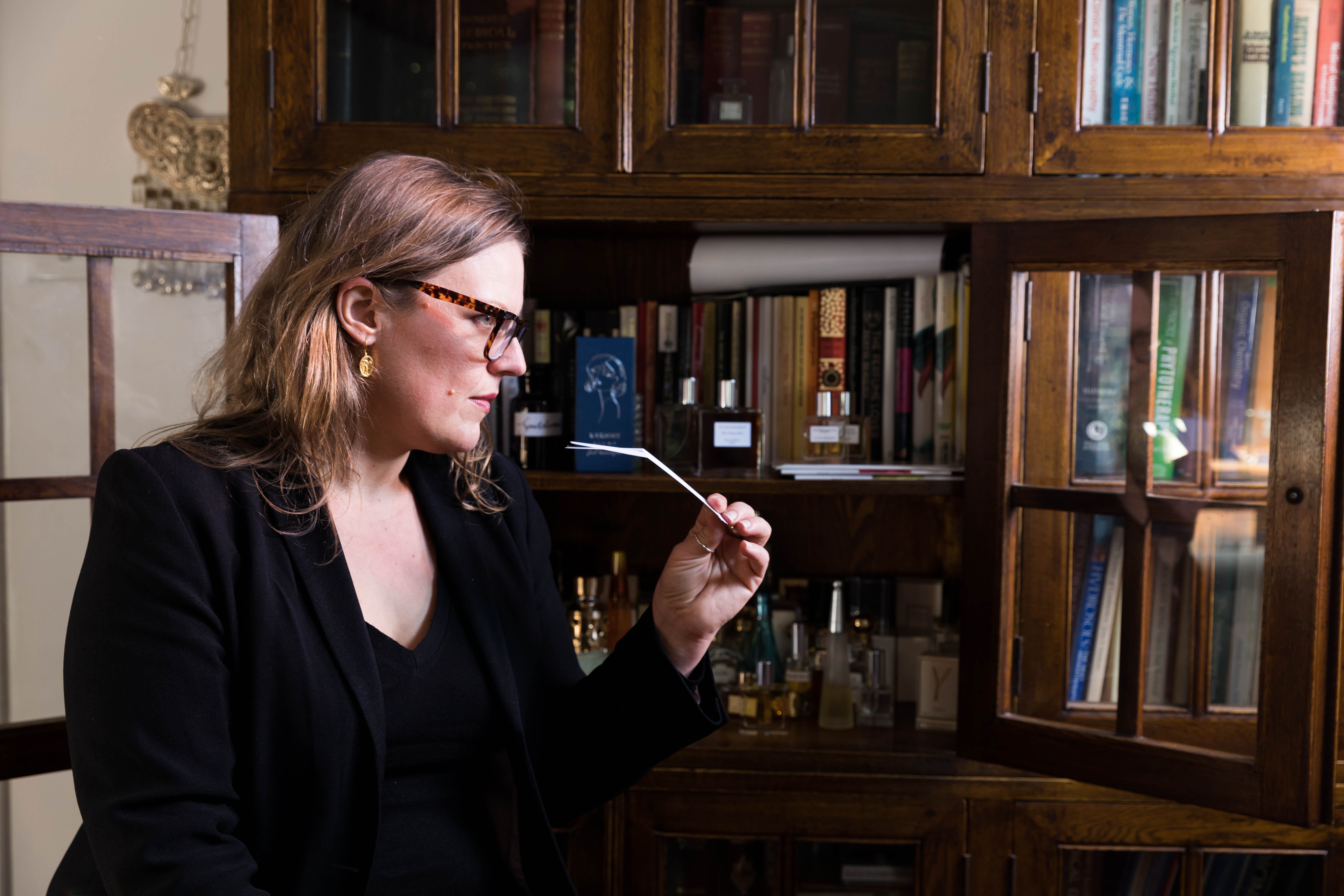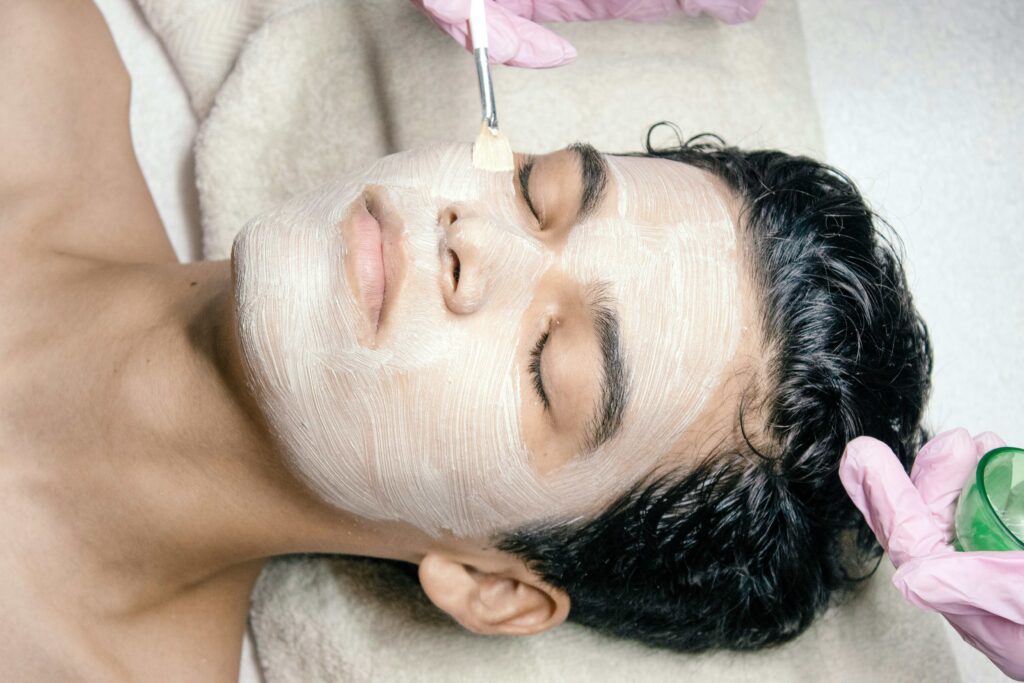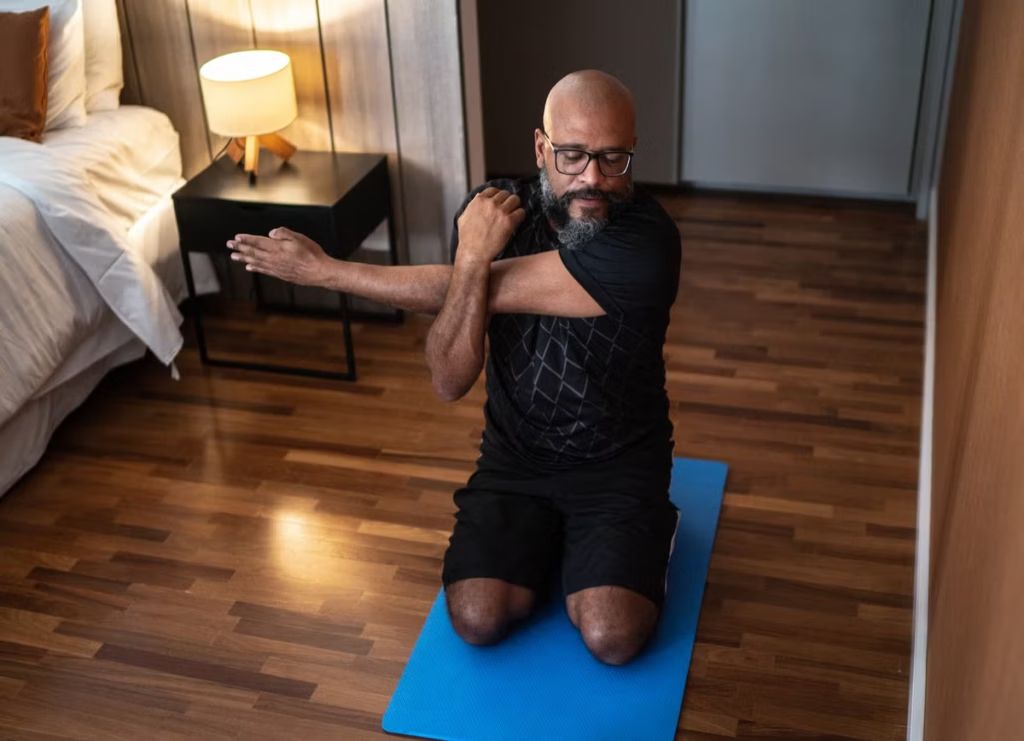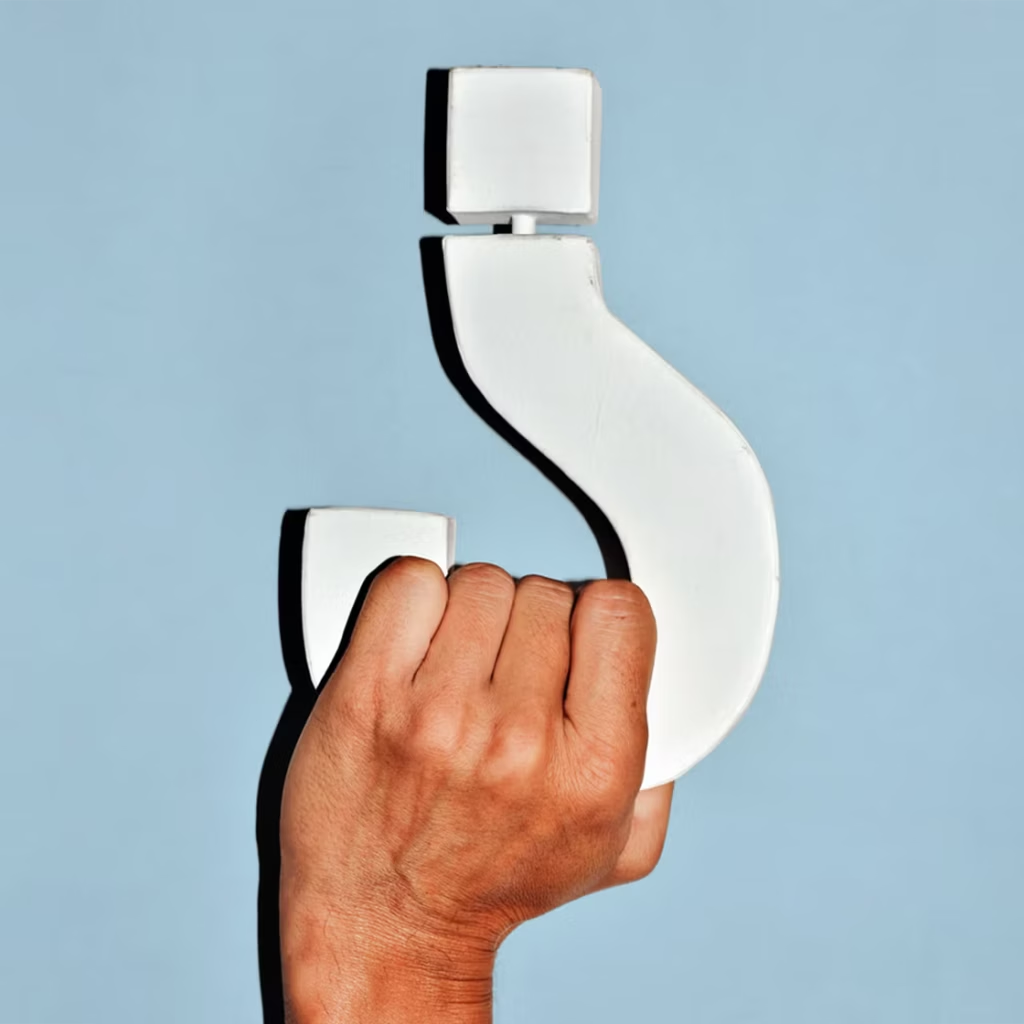Linden Forrest doesn’t remember much about the night that changed his life. It was 10 years ago and the then 21-year-old chef from Launceston was at farewell drinks for a mate who was moving interstate. After being confronted by a man who’d had a dispute with Forrest’s brother, both were ejected from the club they were drinking at. Forrest was walking away when the man grabbed him from behind and rammed him head first into a brick wall. Forrest’s brain was deprived of oxygen for five-and-a-half minutes and he suffered multiple haemorrhages. He woke up in hospital in neck and back braces.
Forrest had so much to deal with both physically and mentally in those first few weeks after the attack that it took a while before he realised something fundamental, elemental even, had changed.
His memory is hazy but he believes his housemate might have been doing some cooking when he finally realised exactly what he’d lost. He waited for the aromas to hit him. Nothing. Bewildered, he tried lighting incense sticks. Still nothing. “It was just a process of elimination,” says Forrest, now 30, looking back. “If you lost your hand you’d be like, ‘Ah, my hand’s not there anymore’. But with your smell, because you can’t see it, it’s a lot harder to figure out.”
But while the realisation might have been gradual, the fallout would be devastating. Within a year he came close to taking his own life. A stranger “talked him off a bridge” as he stood over a local gorge, contemplating a 50m drop down onto silt and rocks. One night he nearly died when his electric blanket caught fire. He couldn’t smell the smoke. Another time he trod in dog shit and then trampled all over his carpet. The smell got deep into the fibres. Eventually someone alerted him to the foul-smelling odour.
Socially, he’s struggled too. He finds it difficult to connect with people and his relationships have floundered as his libido and desire for affection have evaporated. “I’m like a Ken doll with the equipment,” he says wryly. “I just feel emotionless.”
Ten years after the assault Forrest is still adjusting to his black and white, emotionally-neutered life. “I’m absolutely not who I was before,” he says. “I’m completely different.”
Somehow, he remains positive, forcing himself to focus on what he still has. “You can get sunk in all this,” he says. “It takes you to a dark place. I might have lost my smell but my eyesight has improved, my hearing’s just phenomenal. The glass is half full.”
Chances are you’ve never given your own sense of smell, or olfaction, much thought. That’s probably because its influence on your behaviour is like an unseen hand subtly manipulating the invisible strings on a marionette. “It operates without our awareness,” says Dr Mehmet Mahmut, a senior lecturer in psychology at Macquarie University’s Food, Flavour & Fragrance Lab. “But it’s important to be aware of the impact that your smell may have on your behaviour, on your decisions and the consequences of that behaviour.”
Forrest had no idea how much his life would be affected by not being able to smell. Why would he? The truth is, it’s only when you suddenly have to navigate your environment without your smell that you realise how important it truly is. And why you’re best to start smelling the roses while you can.

ANIMAL ATTRACTION
I have to profess I’ve never had a great sense of smell. Most men don’t. Where my wife is constantly detecting vile odours coming from our kitchen bin as soon as she enters the front door, I have to be face-to-face with a rotting chicken carcass to finally twig.
“It’s a staple finding that females have a better sense of smell than males,” says Mahmut, who’s currently on a sabbatical at the University of Dresden with the world’s preeminent olfaction expert, Professor Thomas Hummel. “One of the things they can use to make the best investment in selecting a partner is their sense of smell. It makes sense from an evolutionary perspective for them to have better smell.”
Broadly speaking your sense of smell has three main functions. To avoid harm, by smelling fire or recognising food that’s off, to aid social communication and to help with the ingestion of food and drink. But while there are biological imperatives, olfaction’s role extends beyond survival, says Mahmut. It’s crucial to our enjoyment and appreciation of life.
People born without a sense of smell are more likely to experience depression. Men born without smell have less sexual partners while women experience more insecurity in their relationships. Odours also help encode memories, especially emotional ones and your smell directly affects your levels of empathy. Mahmut’s initial interest in olfaction stemmed from its impact on psychopaths, known for their low empathy scores. “In each study we did we found the higher someone’s psychopathic characteristics the poorer their sense of smell,” he says. If you’re worried your inability to smell funky socks behind the dryer means you’re liable to begin slaughtering your workmates, rest assured, a psychopathic diagnosis relies on meeting a range of criteria.
Of the myriad ways his absence of smell, clinically referred to as anosmia, has affected Forrest’s life, the most obvious is in regard to food. It’s been a particularly cruel blow for someone who had worked in hospitality since he was 16 and dreamed of one day owning a restaurant. “I enjoyed smell and taste so much I was basing a career on it,” Forrest says. Now, he regards it as too risky. “Someone with no smell or taste working in a kitchen is like a blind person driving a taxi.”
Less immediately obvious but just as distressing has been the social impact of Forrest’s condition. Especially in regard to women. If he’s ‘Ken’, women as a whole are a sea of plastic Barbies. He can appreciate their looks in the same way he can admire the sheen on a freshly detailed car. “I just don’t feel anything for them,” he says. “Even ones who tick every box – good looking, good head on their shoulders – they’re just nothing more than a person. Your libido is just gone.”
Mahmut recently conducted a review on the role of olfactory ability in the three broad stages of relationships: initiation, maintenance and breakdown. It’s well established that in the attraction stage, the more you like someone’s body odour, the more genetically compatible you are in terms of producing healthier offspring, he says.
Less well known is olfaction’s role in the maintenance phase of relationships. Here, having a good sense of smell is associated with being able to understand your partner’s emotions and being able to respond to them. “People with a better sense of smell can detect the differences between the different types of sweat we produce,” says Mahmut. “So, when you detect anxiety sweat you can respond with empathetic responses.”
It’s in this stage that Forrest has experienced the most trouble. “I don’t show emotion,” he says. “I’m really hard to read. Everything’s got to be forced. If I get past the initial stage there’s just an invisible wall there.”
Research on the role of smell in relationship breakdown is still emerging but anecdotal evidence shows that during a break-up some women find their partner’s body odour disgusting. “That’s quite repellent compared to finding somoneone visually ugly,” says Mahmut. “It might be signalling, ‘Hey, they’re no longer good for me’.”
This has implications if a woman is on the contraceptive pill, which can alter her odour preferences. What happens when she comes off the pill? In Mahmut’s review, women using contraception when they met their partner and still using it, reported higher relationship satisfaction than those no longer on the pill.
We all like to believe we’re conscious agents of our own destiny. But the truth is our instincts often guide us as much, if not more, than our rational thoughts. Which raises an intriguing possibility: our so-called sixth sense may in fact be a response to the unconscious cues provided by our smell. “Something that’s driving your behaviour might be driven by cues like body odour that you’re not making a connection between,” says Mahmut. “It might be labelled intuition.”
FOLLOW YOUR NOSE
Chrissi Kelly lost her sense of smell in 2012. Unlike Forrest, though, she got it back. Kelly’s case started with a sinus infection, then one morning she woke up and immediately realised her smell was gone. “I went into the bathroom and I couldn’t smell my toothpaste,” remembers Kelly, who has an academic background in archaeological science. Panic stricken, she frantically tried smelling everything in the bathroom. “It was awful,” she recalls.
After seeing numerous doctors and ENT specialists, Kelly plunged into severe depression and it wasn’t just because she missed the smell of jasmine or the taste of a bacon sandwich. “It’s a much more complicated mechanism than that,” she says, citing research that shows a person who is clinically depressed has a higher chance of having reduced volume in their olfactory bulb, a structure in the brain that receives neural input on odours from the nasal cavity. Similarly, she says, in people like her and Forrest, who lose their smell, olfactory bulb volume also decreases.
Kelly began to feel all forms of emotion draining from her life. By the time she hit rock bottom, around six months after the sinus infection, she felt, “So emotionally flat I couldn’t feel sorrow anymore”. This sense of helplessness was something Kelly, who went on to start the anosmia awareness group AbScent, has seen again and again. “People who lose their smell feel like they’re behind a glass wall, that they’re spectators in their own lives,” she says.
At her wit’s end, Kelly scoured the internet and found one doctor who knew something about smell loss. He tested her smell using the standard Sniffin’ Sticks test. She scored zero. He told her to come back in a few months. By that time she had noticed the first signs her smell might be returning. “The second time I was classified as ‘hyposmic’, which is just the tiniest bit of smell.” On the way out the door, the doctor said, “You should try smell training”. A new field – the first research paper was written by Mahmut’s supervisor Professor Hummel only in 2009 – it involves smelling four essential oils twice a day for
four months.
Kelly started sniffing, keeping a diary to note down whether things smelled the way she expected they would. Eventually she put her methods onto a website for anosmia sufferers to try.
Today her sense of smell is at expert level. She scored 46 out of a possible 48 on the Sniffin’ Sticks test. But it’s her appreciation of her smell – she’s like the owner of a new car who basks in the odour of unalloyed freshness – that is perhaps most instructive. “Having lost it once, the joy I experience from smelling something that’s really good is exquisite.”
The pay-off might go beyond mere bliss, though. In that conscious appreciation and reverie could lie the keys to enriching your life in ways you’d ordinarily conclude are, if not profound, certainly not to be sniffed at. It’s just that in this case, that’s precisely what you should do.
WHIFF OF POSSIBILITY
“Close your eyes,” says Jocelyn Fullerton, founder of boutique Sydney perfumery Cult of Scent. I’m in Fullerton’s fragrance studio in her cosy bungalow in Sydney’s Lilyfield. A warm and expressive woman with bright eyes framed by heavy, chic-looking glasses, Fullerton has opened what looks like a two-litre flask containing a scent that’s just beyond my grasp. I close my eyes and breathe in. “What colour is it?” asks Fullerton. “I don’t know, light blue?” I venture. I have an image of a bathroom in a house I used to live in by the sea. “I feel like I might have bathed in it,” I say. I open my eyes. “It’s a lavender extract,” says Fullerton. The moment she says it, the smell clicks into place in my mind. I was so close.
“That’s one of the first exercises we do in perfumer training, just smelling lots of ingredients and learning how to recognise them,” says Fullerton, as we sit down at a desk cabinet filled with little brown bottles of essential oils. She estimates there are over a thousand different fragrances in her studio.
As she talks my eyes wander down to her lap, where I’m a little shocked to see the lower half of a human skull. Fullerton must notice my eyes popping. “Oh, this is ‘Bodiless Fred’,” she says, holding him up. Ironically, she says, pointing at his nasal cavity, Fred had a deviated septum, so whoever the skull was moulded on probably didn’t have good smell.
With a background in aromatherapy, Fullerton is well versed in the physiological effects different fragrances can induce. She hands me a review study called The Influence of Fragrances on Human Psychophysiological Activity, detailing electroencephalographic responses to various odours. The review found fragrances significantly modulate the activities of brain waves responsible for various cognitive states. Lavender, for example, decreased working memory, while a combination of orange and lavender reduced patients’ anxiety before dental treatment. “It’s fascinating,” Fullerton says. “But it makes sense because you’re playing with your brain waves.”
While fragrances have practical applications in aromatherapy, it’s the more intrinsic ability to detect, identify and discriminate between odours that may have the most beneficial long-term effects on your health. Research is still in its infancy, but let’s just say, the scent is getting stronger.

TOTAL RECALL
In recent years it’s emerged that loss of smell is one of the earliest signs of dementia. US research shows older people who have difficulty identifying common odours are twice as likely to develop dementia in five years compared to those with no significant smell loss. Bizarrely, the smell of peanut butter is one of the first smells to go. But here’s the thing: smell training could not only reverse declining olfactory ability but also help prevent neurodegenerative diseases like dementia, Alzheimer’s and Parkinson’s.
A study published in The International Journal of Geriatric Psychiatry found older people who did smell training not only improved in odour identification but also in cognitive functions such as verbal fluency, more than participants who completed Sudoku puzzles. The reason is that unlike other senses, the olfactory bulb connects to the amygdala, responsible for processing emotions and the hippocampus, which handles associative learning. This area of the brain is also highly neuroplastic.
“I think everyone should be smell training,” says Kelly. “We’re going to lose our smell as we age in the same way we lose our eyesight. We know the brain is plastic. We know smell training can change the structure of your brain. It’s a very, very powerful tool.”
The act of trying to identify an odour, as I did with the lavender extract, forces you to raid the emotional part of your brain to make a link. It’s not always easy. “You’re creating new neural pathways,” says Fullerton. “You’re toning up the connection between perception, analysis and recognition. It’s like a muscle. You’re actually toning up your memory.”
She’s not speaking entirely figuratively here. Consider the case of sommeliers, who possess perhaps the most acute sense of smell of all. A study in the journal Frontiers in Human Neuroscience found that in the brains of master sommeliers, both the right insula and entorhinal cortex areas, associated with memory capacity, were larger and more developed than in a control group. As a result, their brains were found to be more resistant to neurodegenerative diseases.
I put this to one of Australia’s leading sommeliers, Manuel Conti, who works at Sydney’s Black Bar & Grill and won the Ruinart Sommeliers Challenge earlier this year. “I believe it could be because we are constantly training and trying to connect the smell to something else,” says Conti, who hails from Tuscany and grew up in a family that ran a gourmet food and beverage shop.

How much does he train? In the lead up to a competition Conti is nose-in-glass two or three times a week with a group of other sommeliers, mimicking competition conditions, which stipulate they must identify six wines in 24 minutes. He also practises on his own for another 10-15 hours a week. “It’s never enough,” he says. “You’re a fool if you think you know everything about wine.”
But while the applied training is necessary, it’s what he does away from the bottle that really helps build the breadth and range of his olfactory abilities. Conti literally smells everything. At a market, he ignores the raised eyebrows of vendors and sticks his nose right up close to fruit and vegetables and breathes in. “Sometimes you look a bit stupid,” he says. “But there is no other way.” He advises you do the same at the supermarket and at home in your cooking and also, of course, with fragrances. And make sure you set yourself blind challenges. Only then do you truly engage your memory.
That night I crack open a bottle of Sauv Blanc and stick my beak in. I close my eyes and inhale the primary aromas as Conti had instructed. I’m smelling peach, which immediately conjures an image of my neighbours’ kitchen table 35 years ago back in country Victoria. I feel like I’m time travelling. I begin to wonder if every bottle of wine can transport me so completely.
At the same time, I’m reminded of something Forrest said to me. He was talking about his appreciation for his magnified sight and amplified hearing but for you and me, it applies equally to our smell. “You have to appreciate what you’ve got,” he says. “You don’t know what you’ve got till it’s gone.”
Train Your Smell
Smell training in clinical trials at the University of Dresden involves putting four different essential oils – lemon, rose, clove and eucalyptus – in
glass jars and following the protocol below:
1 .Hold the first jar about an inch away from your nose
2 .Relax and try to inhale naturally through the nose
3 .Repeat a couple more times, then rest for five minutes
4 .Move on to the next smell
and repeat as above
Do it at least twice every day, ideally morning and evening.















